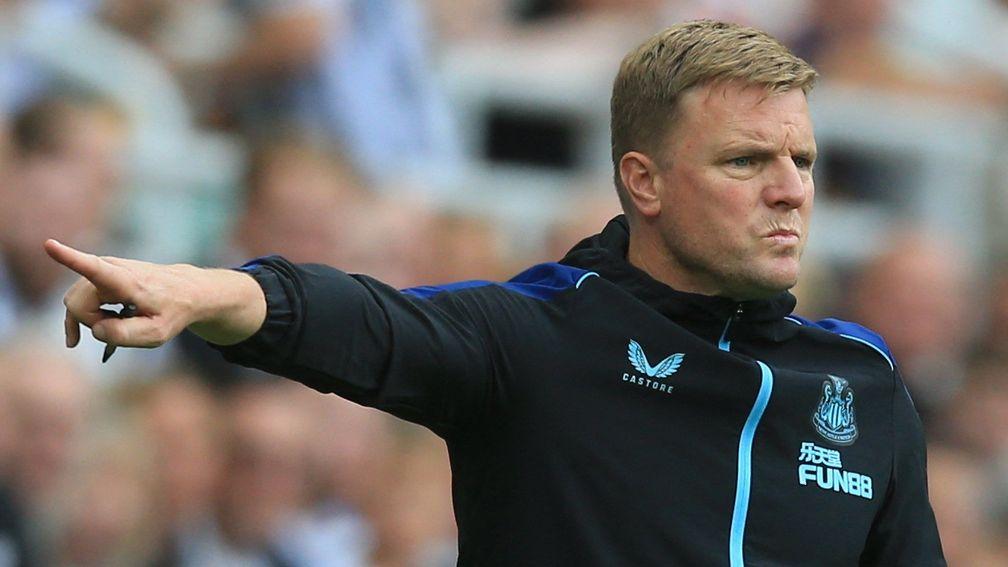What does the end of one Premier League season tell us about the next?
The Soccer Boffin's weekly does of betting wisdom

You are betting on what happens next. The first time I heard those words was in a spread betting office in April 1999 during an FA Cup semi-final. I was there to write a feature on the bedlam of a trading floor. The words were shouted in my ear to explain why telephonists taking bets would wrap up a call by confirming the current make-up as well as the price and the stake.
Always we are betting on what will happen next. We form an opinion about the future from our evaluation of the past. We might conclude that the past is going to be repeated, or we might conclude that the past is not going to be repeated. Either way we are giving our interpretation of the predictive value of what happened before.
One thing I have realised over the past 23 years is that at the start of a season some bettors put a lot of weight on how a team ended the previous season. If a team finished strongly, the argument goes, they had improved and this season they will be as good again, if not better. On the other hand, if a team finished weakly they had deteriorated, and this season they will be as bad again, if not worse.
Is it true? The short answer is not really. The longer answer goes like this.

I studied teams who played in the Premier League in consecutive seasons. I did this for 26 pairs of seasons – from 1995-96 and 1996-97 to 2020-21 and 2021-22. I compared points in the later season with points in both halves of the earlier season.
Teams who had gained more points in the second half of the previous season than in the first half tended to accumulate points at a slower rate over the next season than they did in the second half of the previous season. And vice versa. Teams who had gained fewer points in the second half of the previous season than in the first half tended to accumulate points at a faster rate over the next season than they did in the second half of the previous season.
There was a seesaw effect. Overall, teams who had improved then deteriorated, and teams who had deteriorated then improved. Those who had gone up came down, and those who had gone down came up. We would have been well advised to expect the opposite of what some of us did expect.
Having said which, let me explain something else.
The second half of the previous season was better than the first half of the previous season at predicting the next season. Just not much better. Doubling points won in the second half of the previous season gave more accurate predictions of points won in the next season than doubling points won in the first half of the previous season. Only slightly more accurate, though.
You could have obtained even more accurate predictions by combining data from both parts of the previous season, giving more weight to the most recent part, but only a little bit more. The optimum combination would have been predictions in which you gave 57 per cent of the weight to the second half of the previous season and 43 per cent of the weight to the first half of the previous season.
Let me put that yet another way. Teams tended to perform in the next season at a level somewhere between the levels at which they had performed in the two halves of the previous season. More often than not it would have been a mistake to anticipate a team performing outside, or even on either edge, of that range.
There are different ways of looking at the same picture, and some will reveal insights that appear to conflict with others. There are many ways of projecting from the past to the future in the Premier League. In the table alongside I have revealed what points won in the first and second halves of last season imply for points won this season. I hope you feel it is worth knowing, even if it is not the only thing worth knowing, as you think about betting on what might happen next.
An interesting line of reasoning, but is it true?
If present trends continue – a phrase that has preceded many wrong predictions. It can be part of a perfectly logical argument, however. In fact, it is an example of the beginning of the classical form of a logical argument.
The beginning exposes the limit of a logical argument, and explains why people with opposing views on a subject can construct flawlessly logical arguments that reach flatly contradictory conclusions.
All logical arguments take this form. If one statement is true then another must be true. There can be any number of intermediate stages between the first and the last, each utterly irrefutable, flowing incontestably from the one before. But no matter how long a logical argument is it will always begin with what is called an axiom, a statement accepted as being true. We could, more helpfully, call it an assumption.
If this is true then that must be true. If present trends continue then certain consequences will follow automatically. Undeniable. It begs the all-important question, though. Will present trends continue?

Not got a William Hill account? Sign up and bet £10 to get £30 in free bets
Open a new account using Promo code H30 only, Min £10 stake, min odds 1/2, free bets paid as 2 x £15, free bets credited after settlement of first qualifying bet, free bets will expire 30 days after the qualifying bet is placed, payment method/player/country restrictions apply. T&Cs apply 18+ begambleaware.org
Today's top sports betting stories
Follow us on Twitter @racingpostsport
Published on inOpinion
Last updated
- Mark Langdon: Premier League rollercoaster leaves me sick
- Patrick Madden: Joe Schmidt's revolution should ensure the Lions won't have it all their own way Down Under
- Simon Giles: How Chelsea have kept moving in the right direction
- Joe Casey: How the final league Merseyside derby at Goodison Park could shape up
- James Milton: Rooney and Lampard struggling to find golden touch as managers
- Mark Langdon: Premier League rollercoaster leaves me sick
- Patrick Madden: Joe Schmidt's revolution should ensure the Lions won't have it all their own way Down Under
- Simon Giles: How Chelsea have kept moving in the right direction
- Joe Casey: How the final league Merseyside derby at Goodison Park could shape up
- James Milton: Rooney and Lampard struggling to find golden touch as managers